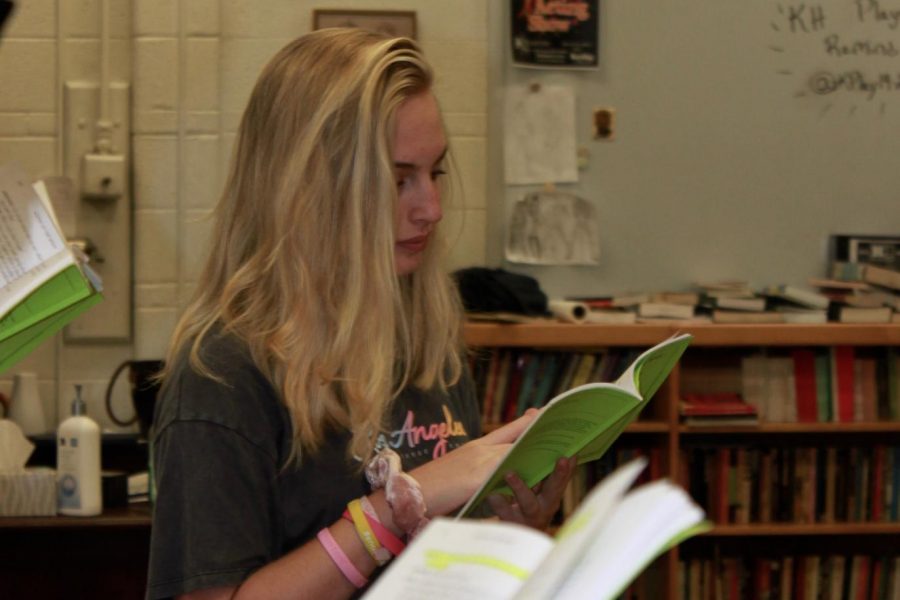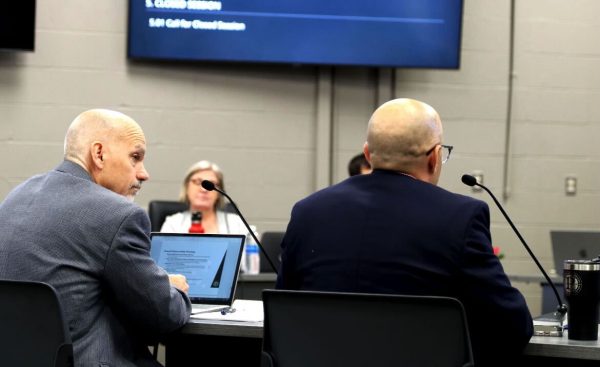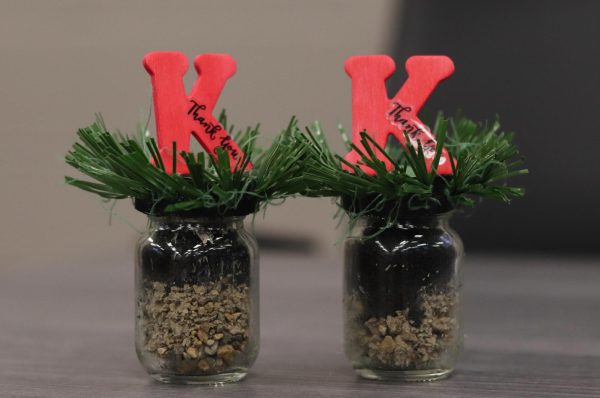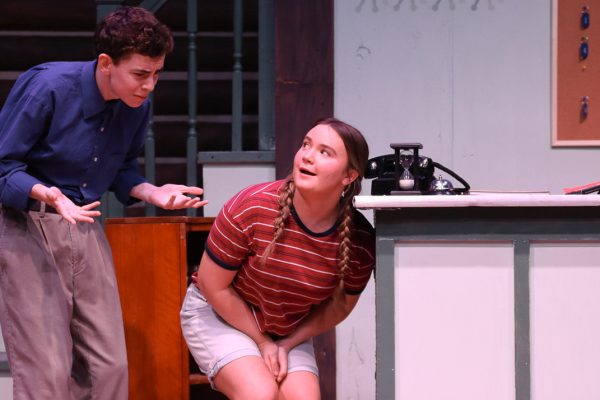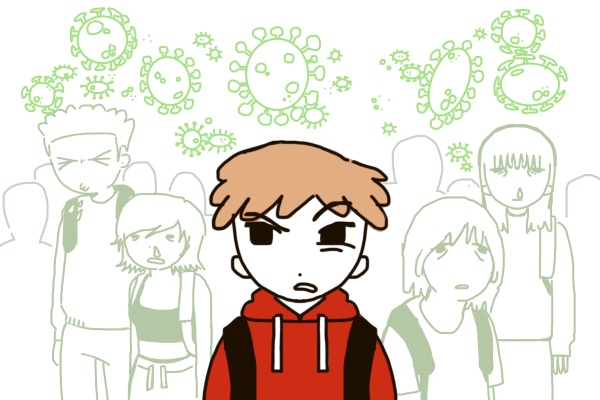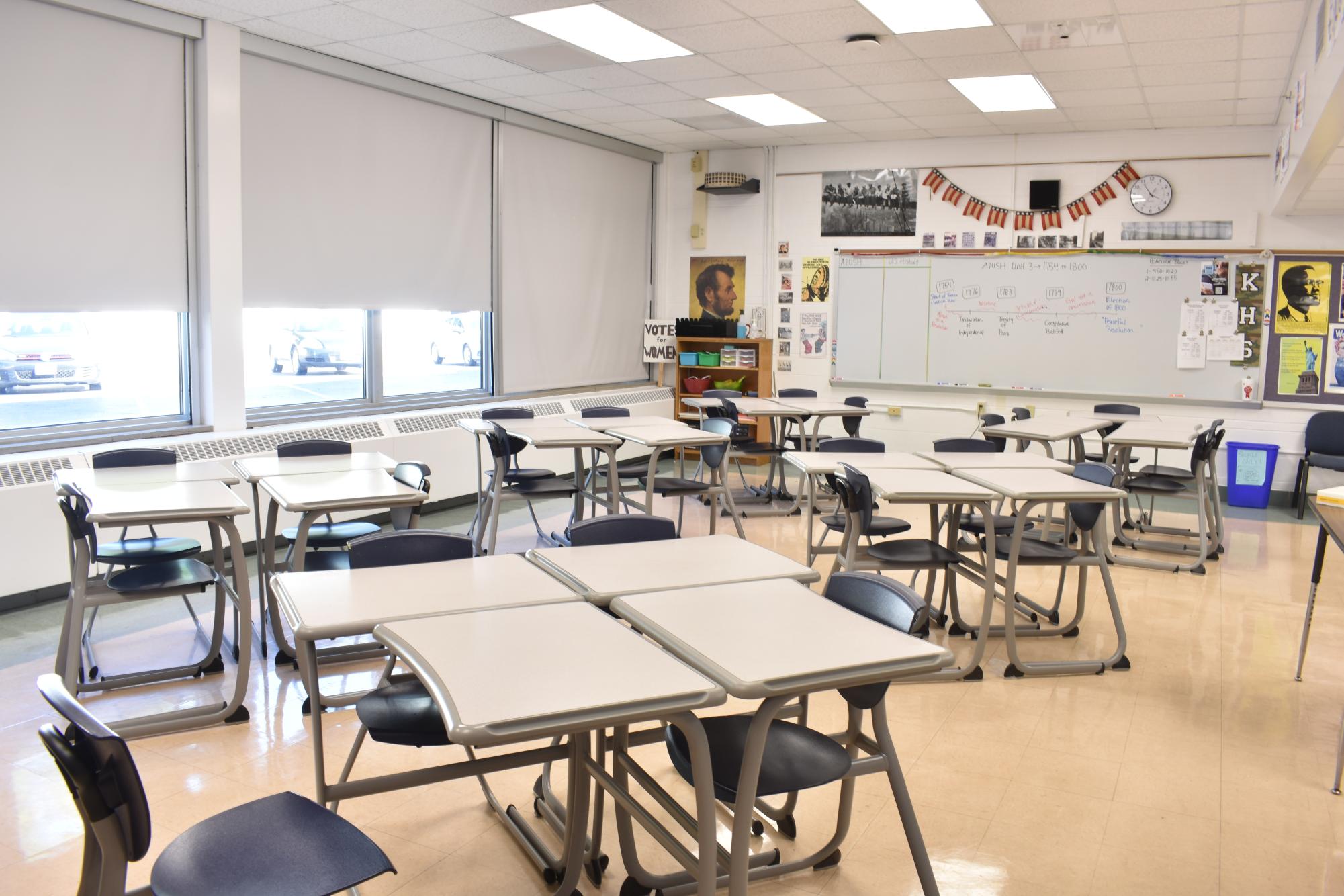Fall play preview: a look inside “Blood at the Root”
Jess Cohen, junior, studies her script during rehearsal for “Blood at the Root”.
Audiences of the KH Player’s upcoming play, “Blood at the Root,” may witness something they have never seen before. From contemporary language to an evaluation of racial double standards, this play will leave audiences considering how others are treated and the different struggles people face.
“Blood at the Root” is based on a series of racially charged events that occurred in Jena, Louisiana in 2006. A black student asked if he was allowed to sit under a tree in the schoolyard or whether it was reserved for the white students who usually sat there. The next day, three nooses were hanging from the tree.
In December, a fight broke out in which six black students beat a white student. The black students were arrested and initially charged for attempted second-degree murder and conspiracy. From then on, the group has been referred to as the Jena Six. In 2009, five of the six pleaded no contest to misdemeanor simple battery charges.
“[The play] digs up a lot of really complicated things we are dealing with in society right now like, who started it?, who is at fault? and this isn’t right, but neither is this, so it’s all messy,” Kelly Schnider, director, said. “Even though the play was written a decade ago, it’s still like it happened yesterday when I hear a line.”
Even though the play was written a decade ago, it’s still like it happened yesterday when I hear a line.
— Schnider
However, the play doesn’t solely focus on race-related problems. Ryan Zickel, sophomore, plays the role of Colin, a character who expresses the idea that everyone endures struggles in their life. Colin is gay, and he believes the black students’ struggle against racism is like his own struggle against homophobia. He wonders why he should care about others being unfairly judged based on their skin color, when they are both facing discrimination. The play shows the perspectives of both the black students and Colin, making it unclear who is right and wrong.
“People don’t know who has it worse, necessarily,” Zickel said. “That’s kind of the point of the show, not just to give people an answer, but to make people think.”
Zickel believes that the play will push the buttons of the audience on a personal level, and they will find themselves empathizing with one of the characters. He says that the empathy they feel will make them learn along with the characters in the show.
JJ Penn, junior, plays the role of Justin, the editor of the school newspaper. Penn says the show is important because America is still dealing with race-related issues.
“[The play] really says something because not a lot of people talk about race because they’re scared to,” Penn said. “The fact that a school — a high school — is putting this show on, it will definitely stick to the community.”
While “Blood at the Root” is unique in content, it is also unique in the way that the rehearsals have been created as a safe space to make mistakes and learn from them. Kelly Schnider, director, says that there are some topics that need to be discussed by the cast in order to present the play to the audience.
Imani Noël, sophomore, plays the role of Raylynn, the sister of one of the students that participated in the fight. Noël believes that the rehearsal process has been beneficial.
“I like the people that I’m doing [the play] with,” Noël said. “The rehearsals we are doing [are] in smaller groups instead of more people in the scene, so I get to know the people that are performing with me. We get into character.”
The play premieres in the Keating Theater October 10-12 at 6:30 p.m. on Thursday night and 7:00 p.m. on both Friday and Saturday nights. Tickets will cost $8 for students and $10 for adults.
“Theater isn’t just about entertaining, it can teach you stuff too,” Zickel said. “Most of the time it is just putting on a show that makes people happy or sad or something. Not a lot of shows make people really think, and that’s what this show does, and I think that’s why it’s important.”
Your donation will support the student journalists of Kirkwood High School. Your contribution will allow us to purchase equipment and cover our annual website hosting costs.
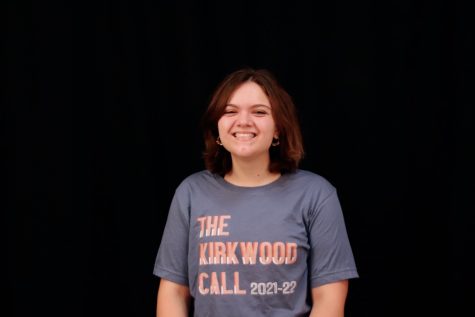
she/her
Hobbies and Interests: Playing/writing/listening to music, politics, exploring
Favorite Song: “Bad (Live)” by U2
Favorite Quote: “Life...


